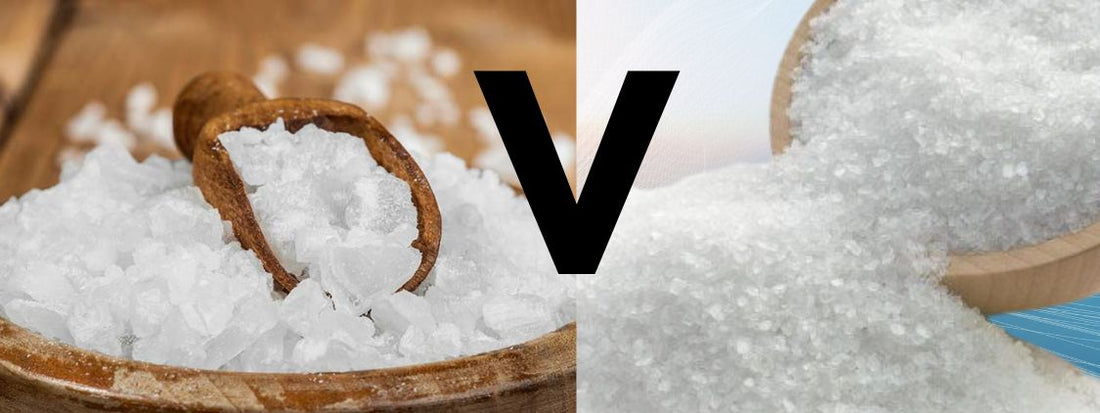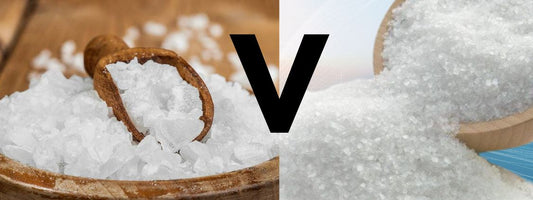
Magnesium Sulfate vs. Magnesium Chloride: Unraveling the Differences
Share
Introduction
Magnesium is an essential mineral that plays a crucial role in various physiological functions within the human body. Two commonly used magnesium salts are magnesium sulfate and magnesium chloride, each with its unique properties and applications. Understanding the differences between these two compounds is vital for informed decision-making in medical, agricultural, and industrial settings.
Chemical Composition
Magnesium sulfate, represented chemically as MgSO₄, consists of magnesium ions (Mg²⁺) and sulfate ions (SO₄²⁻). It is commonly found in the hydrated form as Epsom salt (MgSO₄·7H₂O). On the other hand, magnesium chloride, with the chemical formula MgCl₂, is composed of magnesium ions (Mg²⁺) and chloride ions (Cl⁻). Both compounds are derived from magnesium, a divalent cation with a +2 charge.
Solubility and Absorption
One of the primary distinctions between magnesium sulfate and magnesium chloride lies in their solubility and absorption characteristics. Magnesium sulfate has high solubility in water, making it readily absorbed through the skin when used in baths or applied topically. This property has led to the widespread use of Epsom salt baths for therapeutic purposes, such as muscle relaxation and alleviation of soreness.
In contrast, magnesium chloride also exhibits good solubility but is known for its enhanced absorption rate compared to magnesium sulfate. This higher absorption efficiency is attributed to the chloride ions, which play a crucial role in the absorption and transportation of magnesium across cell membranes. As a result, magnesium chloride is often considered more bioavailable, making it an attractive option for oral supplements.
Medical Applications
Both magnesium sulfate and magnesium chloride find applications in the medical field, albeit for different purposes. Magnesium sulfate is commonly used in obstetrics to prevent or treat eclampsia and pre-eclampsia during pregnancy. It also serves as a muscle relaxant and is administered intravenously to manage certain cardiac arrhythmias. Furthermore, Epsom salt baths are popular for their potential benefits in relieving muscle aches, stress, and improving overall well-being.
Magnesium chloride, due to its superior absorption rate, is preferred in oral magnesium supplements. These supplements are widely used to address magnesium deficiencies, which can manifest as muscle cramps, fatigue, and irregular heartbeat. Additionally, magnesium chloride has been explored for its potential in supporting cardiovascular health and improving immune function.
Agricultural Uses
In agriculture, magnesium is an essential element for plant growth and development. Both magnesium sulfate and magnesium chloride are employed as fertilizers to provide plants with the necessary magnesium content. However, the choice between the two salts depends on various factors, including soil composition, crop type, and specific nutrient requirements.
Magnesium sulfate, particularly in its hydrated form (Epsom salt), is commonly used as a soil amendment to correct magnesium deficiencies. Its water-soluble nature allows for rapid uptake by plants, making it an effective short-term solution. It is particularly useful in sandy soils where magnesium leaching is more common.
On the other hand, magnesium chloride, often applied as a liquid solution or in the form of brine, provides a more sustained magnesium supply to plants. Its enhanced absorption properties can contribute to better long-term soil fertility. However, it is essential to consider the potential impact of chloride ions on soil salinity, as excessive levels can negatively affect plant growth.
Industrial Applications
Both magnesium sulfate and magnesium chloride find applications in various industrial processes. Magnesium sulfate is commonly used in the manufacturing of textiles, paper, and detergents. It serves as a drying agent in the production of cements, and its hydrated form is employed in certain construction materials.
Magnesium chloride, with its hygroscopic properties, is widely used as a de-icing agent for roads and sidewalks in colder climates. It lowers the freezing point of water, preventing the formation of ice. Additionally, magnesium chloride is employed in dust control on unpaved roads and as a stabilizing agent in the production of tofu.
Conclusion
In conclusion, magnesium sulfate and magnesium chloride, while both valuable sources of magnesium, exhibit distinct characteristics that make them suitable for different applications. Magnesium sulfate, with its high solubility and use in Epsom salt baths, is renowned for its therapeutic benefits, particularly in muscle relaxation and stress relief.
On the other hand, magnesium chloride, boasting superior absorption rates, is favored in oral supplements, addressing magnesium deficiencies and supporting various physiological functions.
Understanding the differences between these two magnesium salts is crucial for making informed choices in medical, agricultural, and industrial contexts. Whether addressing health concerns, enhancing crop growth, or contributing to industrial processes, the unique properties of magnesium sulfate and magnesium chloride make them indispensable components in our daily lives.
References:
- Rude, R. K., & Shils, M. E. (2013). Magnesium. In Modern Nutrition in Health and Disease (11th ed., pp. 159-175). Lippincott Williams & Wilkins.
- Jahnen-Dechent, W., & Ketteler, M. (2012). Magnesium basics. Clinical Kidney Journal, 5(Suppl 1), i3–i14. https://doi.org/10.1093/ndtplus/sfr163
- Coudray, C., Rambeau, M., Feillet-Coudray, C., Gueux, E., Tressol, J. C., Mazur, A., & Rayssiguier, Y. (2005). Study of magnesium bioavailability from ten organic and inorganic Mg salts in Mg-depleted rats using a stable isotope approach. Magnesium Research, 18(4), 215–223.https://doi.org/10.1684/mrh.2005.0007



